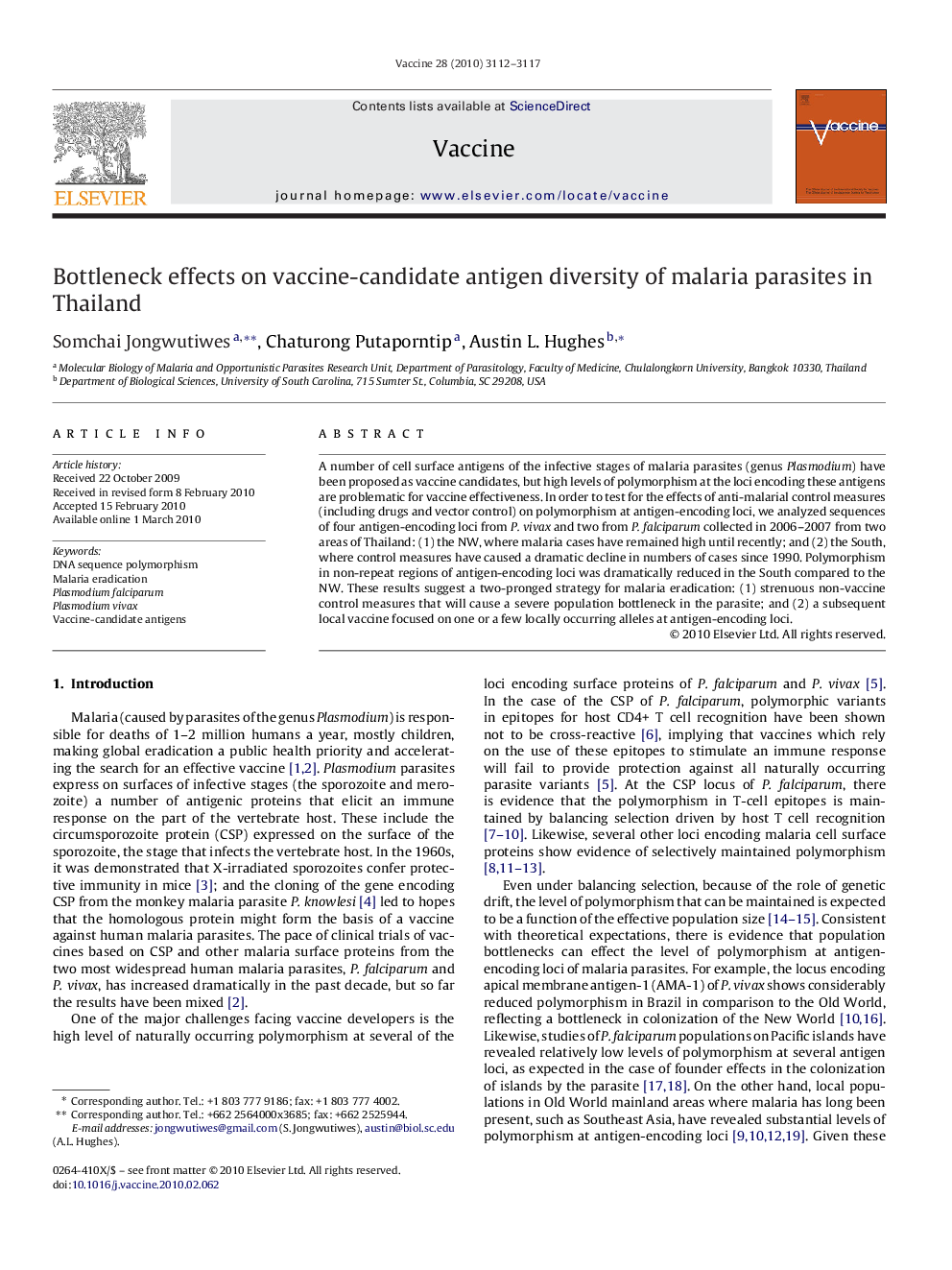| Article ID | Journal | Published Year | Pages | File Type |
|---|---|---|---|---|
| 10970074 | Vaccine | 2010 | 6 Pages |
Abstract
A number of cell surface antigens of the infective stages of malaria parasites (genus Plasmodium) have been proposed as vaccine candidates, but high levels of polymorphism at the loci encoding these antigens are problematic for vaccine effectiveness. In order to test for the effects of anti-malarial control measures (including drugs and vector control) on polymorphism at antigen-encoding loci, we analyzed sequences of four antigen-encoding loci from P. vivax and two from P. falciparum collected in 2006-2007 from two areas of Thailand: (1) the NW, where malaria cases have remained high until recently; and (2) the South, where control measures have caused a dramatic decline in numbers of cases since 1990. Polymorphism in non-repeat regions of antigen-encoding loci was dramatically reduced in the South compared to the NW. These results suggest a two-pronged strategy for malaria eradication: (1) strenuous non-vaccine control measures that will cause a severe population bottleneck in the parasite; and (2) a subsequent local vaccine focused on one or a few locally occurring alleles at antigen-encoding loci.
Related Topics
Life Sciences
Immunology and Microbiology
Immunology
Authors
Somchai Jongwutiwes, Chaturong Putaporntip, Austin L. Hughes,
